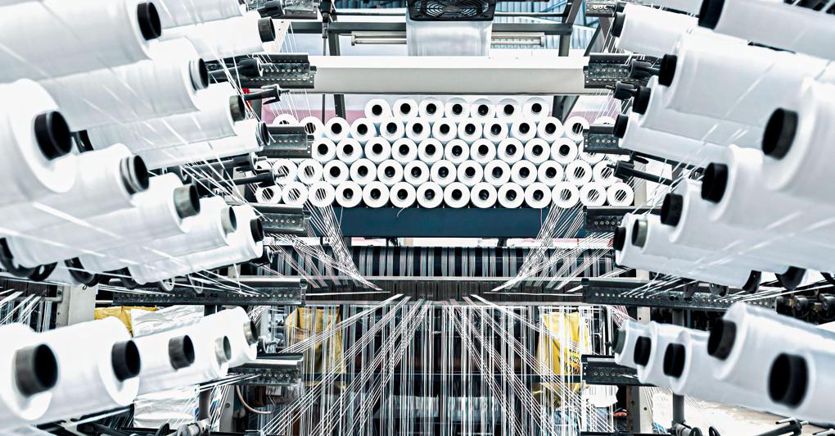The strength of the Italian textile-fashion supply chain lies in its quality and completeness, unique characteristics in the world panorama, to which are added flexibility and capacity for innovation. But this fragmentation and the presence of thousands of SMEs – in particular in the upstream part of the supply chain, more manufacturing and linked to textile processing – are also the fragility of the system, which expensive energy risks transforming into an authentic crisis, Sergio Tamborini warns, which a few months ago took over from Marino Vago as president of the Italian fashion system.
Small businesses and subcontractors in the districts
«I attended the meeting organized in Torbole Casaglia a few days ago, where companies in notoriously energy-intensive sectors such as glass, paper, ceramics, steel and automotive have raised the alarm – explains Tamborini -. I join them because the upstream part of our supply chain is equally energy-intensive and at the same time it is essential for the entire system ». SMI is the most important component of Confindustria Moda in terms of turnover and employees and Tamborini is also the CEO of Ratti (Marzotto group), leader in the processing of noble fiber fabrics, also present on the market with its own brand and finished products.
As president of Sistema Moda Italia, he thinks above all of another type of company, active exclusively in spinning and weaving, and of the so-called ennoblers, companies that dye and print and which are found in all the textile districts, from Como to Prato, passing through Biella. . “These are mainly small and medium-sized companies that work as subcontractors: they do not have their own brands and have always been able to count on very different margins from the downstream part of the supply chain – underlines Tamborini -. But we cannot underestimate their difficulties, because the functioning of the entire Italian supply chain depends on these companies: the danger is that some of its parts will be relocated, for example to Turkey “. Known and appreciated for his lucidity and analytical skills, but also for his frankness – as a manager, entrepreneur and protagonist of the associative world – Sergio Tamborini does not mince words: “Expensive energy can lead to the shutdown of plants: today producing costs more than to remain closed. Stops which can become definitive because many companies do not have the bargaining strength to download the increases in energy on the price lists. And even if they succeeded, at least in part, the increases would reach, ring after ring, the finished products, slowing the recovery that characterized the textile-fashion-accessories at least until September ».
From cotton to cashmere, prices are also rising on raw materials
In the short term, the president of SMI sees a single solution: to intervene on speculation, starting with the phenomenon of short selling. “It is right that the Government thinks of families, calming tariffs with extra public resources and in part it can also serve businesses, but they are not sustainable interventions for long – adds Tamborini -. Prime Minister Draghi appealed to large companies in the sector to do their part, given the profits that the situation has provided them for months. But perhaps this “gentle push” is not enough, more decisive interventions are needed before it is too late. I remember that for months other increases in raw materials, from cotton to cashmere, and in the chemical products needed by the companies of the mountain have weighed on the textile-clothing chain ”.

Once the crisis has been overcome, assuming that politics finds time to focus on this and not on the race to the Quirinale, Tamborini suggests, it is necessary to rethink medium and long-term energy policy. “Rather than rethinking, we should say building: for at least twenty years the country, the political class in particular, has not had the necessary vision on these issues – concludes the president of Sistema Moda Italia -. In recent weeks we have returned to talk about the gas fields that Italy owns but does not exploit and the debate on nuclear power has revived, thinking of the new generation on which France is also reflecting. But we must be very clear and realistic: even by setting a serious energy policy on gas or on new drilling for oil, it will take about two years to see the first results and for nuclear we will go up to at least ten. We cannot afford such a long time ».
